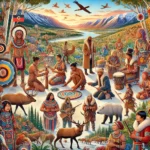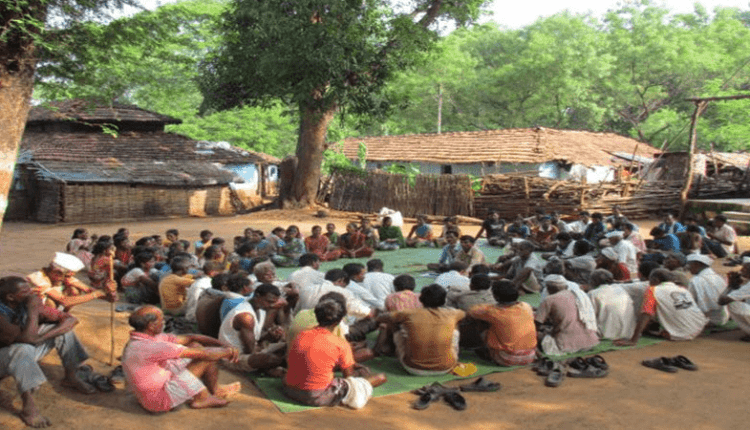The Adivasi (tribal) knowledge system refers to the collective wisdom, practices, and traditions developed by indigenous communities over centuries. Rooted in a deep connection to nature, these systems encompass diverse areas such as agriculture, medicine, ecology, governance, art, and spirituality. Adivasi knowledge is typically passed orally from generation to generation, fostering sustainable living and harmonious coexistence with the environment.
In today’s context, recognizing and integrating tribal knowledge can address several pressing global challenges, including environmental degradation, climate change, food security, and cultural homogenization.
Core Aspects of Tribal Knowledge Systems
- Environmental Stewardship:
Tribal communities have long practiced sustainable resource management. Their methods include rotational farming, water conservation, and biodiversity preservation. For example, the shifting cultivation (jhum farming) practiced in Northeast India allows soil to regenerate, demonstrating an understanding of ecological balance. - Medicinal Practices:
Traditional medicine derived from plants has been a cornerstone of tribal healing systems. The knowledge of medicinal herbs like neem, turmeric, and ashwagandha has gained global recognition, forming the basis for many modern pharmaceuticals. - Social Cohesion:
Tribal governance systems prioritize community welfare and consensus-based decision-making, offering an alternative to hierarchical and often exploitative governance models. - Resilience to Climate Change:
Many tribal communities have adapted to harsh climatic conditions, such as deserts, rainforests, and mountains, using resource-efficient techniques like water harvesting and agroforestry.
Addressing Global Challenges with Tribal Knowledge
- Climate Change Mitigation:
The world is grappling with rising temperatures, deforestation, and unsustainable consumption patterns. Tribal practices like afforestation, forest conservation, and zero-waste living can help reverse environmental damage. For instance, the Bishnoi community in India has historically protected trees and wildlife, setting an example of conservation. - Sustainable Agriculture:
Modern agriculture often relies heavily on chemical fertilizers and monocropping, depleting soil fertility. Tribal knowledge emphasizes crop diversity, organic farming, and natural pest control. The use of indigenous seed varieties ensures resilience to pests and extreme weather. - Biodiversity Preservation:
Tribal communities act as custodians of biodiversity. Their understanding of ecosystems can guide efforts to protect endangered species and habitats. The Amazon rainforest, home to numerous indigenous tribes, exemplifies this role in maintaining the planet’s ecological balance. - Healthcare Innovations:
The traditional knowledge of medicinal plants can complement modern healthcare. For example, the San people of Southern Africa have long used the Hoodia plant as an appetite suppressant, inspiring potential treatments for obesity. Recognizing such contributions can foster collaboration between traditional and modern medicine. - Conflict Resolution:
Tribal societies often resolve disputes through restorative justice, prioritizing dialogue and reconciliation over punishment. This approach can inform global peace-building efforts and reduce social inequalities. - Cultural Revival and Identity:
In an increasingly globalized world, tribal knowledge offers a counterbalance to cultural erosion. Celebrating indigenous traditions and art can promote cultural diversity and foster a sense of global unity.
Challenges in Preserving Tribal Knowledge
Despite its importance, tribal knowledge faces several challenges:
- Cultural Erosion:
Globalization and urbanization have disrupted traditional ways of life, leading to the loss of indigenous languages and practices. - Marginalization:
Tribal communities are often economically and politically marginalized, limiting their ability to safeguard and share their knowledge. - Intellectual Property Issues:
The exploitation of tribal knowledge by corporations without fair compensation (biopiracy) remains a significant concern. - Lack of Recognition:
Many tribal practices are dismissed as unscientific or primitive, hindering their integration into mainstream solutions.
Recommendations for Leveraging Tribal Knowledge
- Documentation and Preservation:
Governments and NGOs should work to document tribal knowledge while respecting community consent and intellectual property rights. - Education and Awareness:
Including tribal knowledge in educational curricula can foster respect and understanding among younger generations. - Policy Integration:
Governments should incorporate tribal wisdom into policies on agriculture, environment, and health. For example, integrating traditional irrigation techniques can improve water management in arid regions. - Community Empowerment:
Empowering tribal communities through legal recognition of their rights to land, resources, and intellectual property is crucial for preserving their knowledge systems. - Collaborative Research:
Partnerships between scientists and indigenous communities can bridge traditional and modern knowledge, leading to innovative solutions.
Conclusion
The tribal knowledge system is a repository of invaluable insights developed through centuries of interaction with nature. Its integration into global problem-solving frameworks can help address critical challenges such as climate change, biodiversity loss, and food insecurity. However, the preservation and respectful utilization of this knowledge require a commitment to empowering tribal communities and protecting their rights.
By embracing tribal wisdom, the world can move towards a more sustainable, equitable, and harmonious future.












